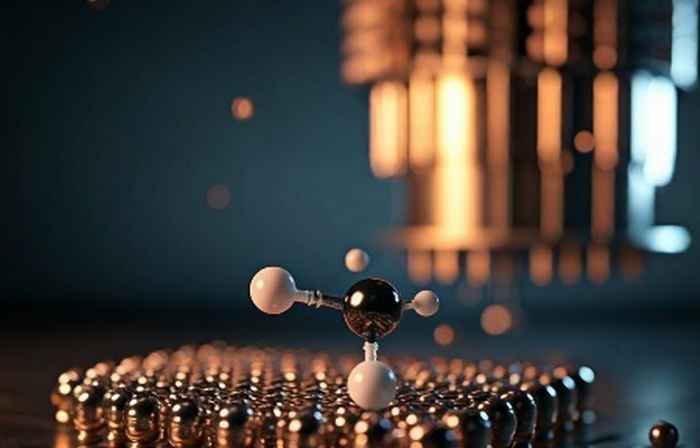Partnership Toyota with quantum research centre QuSoft
18 March 2025
QuSoft, the Dutch research centre for quantum software, was founded by CWI and the UvA in 2015. Starting a few years ago, it joined forces with Toyota Motors Europe on several research projects. Their aim is to use quantum computers to solve complex problems in catalytical processes.
Quantum computers show promise to excel in modelling the quantum aspects of catalysed reactions, which is a very computationally intensive process on classical computers. When problem sizes exceed the capacity of classical computers, quantum approaches may offer significant advantages in speed and accuracy.

Catalytic processes
This precision is very important for understanding and developing new catalytic materials and processes. Heterogeneous catalysis plays a major role in industrial processes like the production of fuels, chemicals, and pharmaceuticals. Therefore, advancing these processes is crucial for making the chemical industry more sustainable.
In the automotive sector, catalytic processes play an important role in exhaust systems and batteries. Improvement here could for example lead to more efficient batteries with better storage capacity and longer lifespans.
Research outcome
QuSoft and Toyota have initiated several projects, many still ongoing. A recent milestone was the review article titled “Modelling Heterogeneous Catalysis Using Quantum Computers: An Academic and Industry Perspective".
Seenivasan Hariharan (UvA Institute of Physics and QuSoft) wrote this review article together with Sachin Kinge (Toyota Motors Europe), and Lucas Visscher (VU Amsterdam). The article aims to fill the knowledge gap in the use of quantum computers for catalytic modelling by compiling relevant articles from the literature and offering concrete examples to the community.
Publication
Seenivasan Hariharan, Sachin Kinge & Lucas Visscher, "Modeling Heterogeneous Catalysis Using Quantum Computers: An Academic and Industry Perspective". Journal of Chemical Information and Modeling 2025 65 (2), 472-511. doi: https://doi.org/10.1021/acs.jcim.4c01212